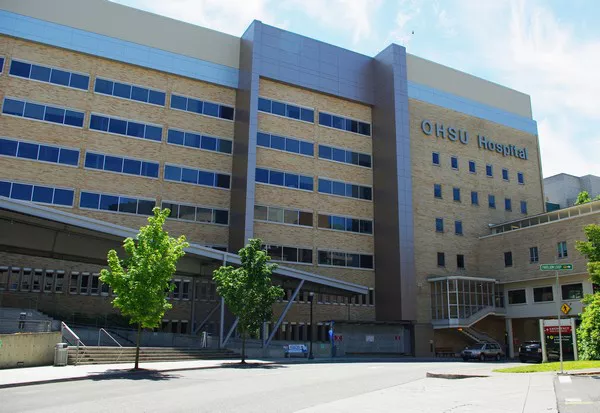Understanding Diastolic Blood Pressure
Before delving into the best medications for high diastolic blood pressure, it’s crucial to understand what diastolic blood pressure is and why it matters for cardiovascular health. Diastolic blood pressure represents the pressure in the arteries when the heart is at rest between beats. It is the bottom number in a blood pressure reading, such as in 120/80 mmHg, where 80 mmHg is the diastolic pressure. While systolic blood pressure (the top number) measures the pressure in the arteries when the heart beats, diastolic pressure indicates the force exerted on the vessel walls when the heart relaxes.
Dangers of High Diastolic Blood Pressure
High diastolic blood pressure can have severe consequences for overall health. When left uncontrolled, it increases the risk of various cardiovascular complications, including heart attack, stroke, heart failure, and kidney damage. Persistently elevated diastolic blood pressure can strain the heart and arteries, leading to damage over time. This underscores the critical importance of effectively managing and treating high diastolic blood pressure.
Lifestyle Changes
One of the primary approaches to managing high diastolic blood pressure is through lifestyle modifications. These changes can significantly impact blood pressure levels and overall cardiovascular health:
Diet: Adopting a heart-healthy diet rich in fruits, vegetables, whole grains, and lean proteins while limiting sodium, saturated fats, and processed foods can help lower blood pressure.
Exercise: Regular physical activity, such as brisk walking, swimming, or cycling, can improve cardiovascular fitness and help lower blood pressure.
Stress Management: Techniques like meditation, deep breathing exercises, and yoga can help reduce stress levels, which can contribute to lower blood pressure.
Consistently implementing these lifestyle changes can lead to significant improvements in blood pressure levels over time.
Medications
When lifestyle modifications alone are insufficient to control high diastolic blood pressure, medications may be prescribed. Several classes of medications are commonly used to treat high blood pressure, each with its unique mechanisms of action:
Diuretics: Diuretics, also known as water pills, help the body eliminate excess sodium and water, reducing blood volume and lowering blood pressure.
ACE Inhibitors (Angiotensin-Converting Enzyme Inhibitors): ACE inhibitors relax blood vessels by blocking the formation of angiotensin II, a hormone that narrows blood vessels, thus lowering blood pressure.
ARBs (Angiotensin II Receptor Blockers): Similar to ACE inhibitors, ARBs block the action of angiotensin II, leading to vasodilation and reduced blood pressure.
Calcium Channel Blockers: These medications prevent calcium from entering the muscle cells of the heart and blood vessels, causing relaxation and widening of arteries, thereby lowering blood pressure.
Beta-Blockers: Beta-blockers reduce heart rate and decrease the force of contraction, thereby lowering blood pressure.
Factors Influencing Medication Choice
When prescribing medication for high diastolic blood pressure, healthcare professionals consider several factors:
Severity of High Blood Pressure: The degree of blood pressure elevation influences the choice of medication and treatment approach.
Presence of Other Health Conditions: Coexisting medical conditions, such as diabetes or kidney disease, may influence medication selection.
Potential Side Effects: Each class of medication has its own set of potential side effects, which must be weighed against the benefits.
Examples of Medications
Some commonly prescribed medications within each class include:
Diuretics: Hydrochlorothiazide (HCTZ), furosemide (Lasix)
ACE Inhibitors: Lisinopril, Enalapril
ARBs: Losartan, Valsartan
Calcium Channel Blockers: Amlodipine, Diltiazem
Beta-Blockers: Metoprolol, Atenolol
Conclusion
It’s important to note that the “best” medication for high diastolic blood pressure varies from person to person. Healthcare professionals consider individual factors and tailor treatment plans accordingly. Therefore, consulting a doctor or healthcare provider for proper diagnosis and personalized treatment is essential. Self-medication or reliance on anecdotal advice can be dangerous and may not effectively manage high blood pressure or prevent associated complications.
Remember, proactive management and adherence to treatment plans are key to reducing the risks associated with high diastolic blood pressure.
FAQs
What is the first drug of choice for diastolic hypertension?
The first-line drug for diastolic hypertension is typically a calcium channel blocker (CCB). These medications help relax blood vessels, reducing diastolic blood pressure. Examples include amlodipine, nifedipine, and diltiazem.
What tablet is good for diastolic blood pressure?
Tablets commonly prescribed for diastolic hypertension include calcium channel blockers (CCBs), such as amlodipine or nifedipine, which relax blood vessels. ACE inhibitors and ARBs may also be effective. However, the choice depends on individual patient factors and the presence of any underlying conditions.
What does it mean when your diastolic blood pressure is high?
When diastolic blood pressure is high, it suggests that the pressure in your arteries between heartbeats is elevated. This can indicate arterial stiffness, increased resistance to blood flow, or other underlying health issues. High diastolic blood pressure is a risk factor for cardiovascular disease and should be monitored and managed.
Related topics:
- Understanding Orthostatic Hypotension
- Understanding TSS: Symptoms, Recovery & Long-Term Effects
- Mycoplasma Bacterial Infection: Causes & Prevention


